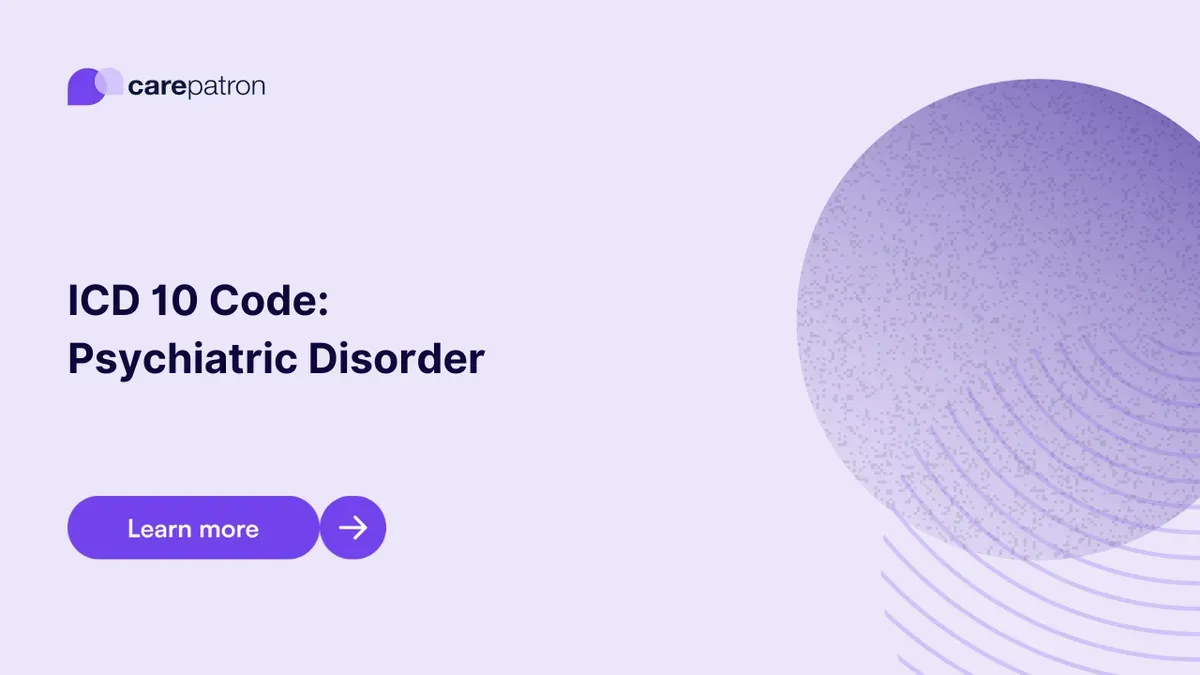
Psychiatric Disorder ICD-10-CM Codes
Explore the essential ICD-10 codes for psychiatric disorders. Understand their significance in diagnosis, treatment, and medical billing processes.
Use Code
EHR and practice management software
Get started for free
*No credit card required
Free
$0/usd
Unlimited clients
Telehealth
1GB of storage
Client portal text
Automated billing and online payments
